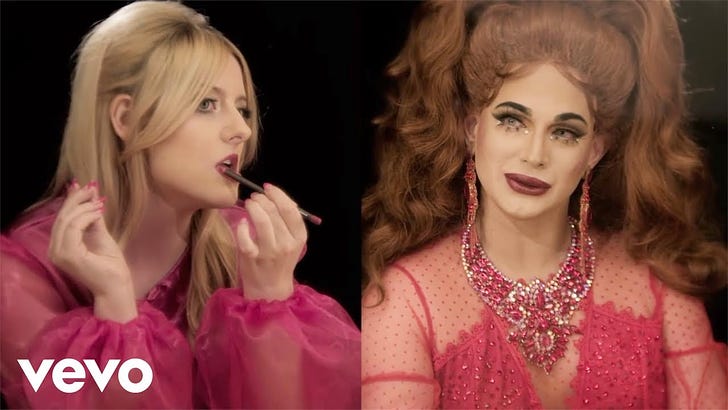Detailed Simplicity with Molly Burch
Here’s my Latest radio show:
It makes sense that Molly Burch is a jazz singer at heart. Jazz singers bend and twist words, molding their meaning with the way they’re executed. Some of them can belt, but a lot of them are more into tiny spaces and the way you can achieve 1000 different emotions with one syllable precisely placed between downbeats. Burch’s latest collection, Romantic Images, may look like a slight collection at first pass. It’s only about 30 minutes—she sings simple sentences about love, self-acceptance, and her personal growth, but there’s a whole world in the way she plays with her words.
If you’re a listener of my radio show you know I’m obsessed with the way she says “baby” in one specific part of Took A Minute. (I could probably pack this essay with all the different ways she says “bahybe” on the album). It’s a song meant to caress, a love song about love songs, but after repeating her sweet platitudes “this is my love song to ya” she faces the camera for “…baay-bee,” an auditory wink at the audience. There’s camp and panache to this album. Elsewhere she’s floating along in her head-voice, like someone freshly swooned by a new crush, but that one specific “bay-be” is aware of the charade—aware that maybe this crush isn’t love yet, but who wants a song where the stakes aren’t eternal?
This album is a smart aesthetic move for Burch. Her past solo work basically consisted of country criers sung over guitar. Now, with the help of the pair behind the band Tennis, she’s achieved a more distinct neon-tinged retro. All 80’s bliss until it isn’t, Images is a malleable backdrop for her musings. She’s kidding when she says “Everything I ever knew about love I learned from watching movies” or maybe she really is hopelessly confined to those tropes (aren’t we all, a little). “Emotion” is a gleaming centerpiece…about the exhaustion of feeling it all. Later, she quite literally peels back the curtain and explains “That's why we love nostalgia/It brings us back to lovin” on Honeymoon Phase.
It’s fitting that the song with the least studio wizardry is also the most direct, the finale “Back in Time.” The magic technicolor world is shed in favor of a simple piano backdrop and rather than exploring the happy-sad highs and lows of looking backwards, Burch shrugs at the idea of actually returning to the past and settles on looking forward and applying the lessons learned. It’s a simple lesson in the end but one achieved with great charisma and style, I recommend a second listen.
-Donovan Burtan



